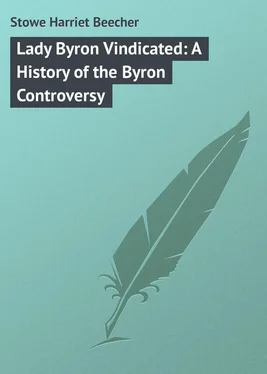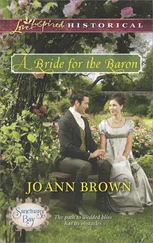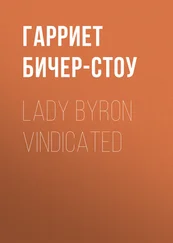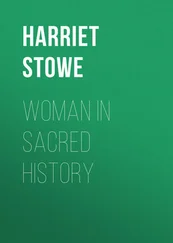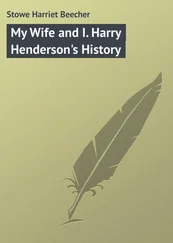Harriet Stowe - Lady Byron Vindicated - A History of the Byron Controversy
Здесь есть возможность читать онлайн «Harriet Stowe - Lady Byron Vindicated - A History of the Byron Controversy» — ознакомительный отрывок электронной книги совершенно бесплатно, а после прочтения отрывка купить полную версию. В некоторых случаях можно слушать аудио, скачать через торрент в формате fb2 и присутствует краткое содержание. ISBN: , Жанр: foreign_prose, на английском языке. Описание произведения, (предисловие) а так же отзывы посетителей доступны на портале библиотеки ЛибКат.
- Название:Lady Byron Vindicated: A History of the Byron Controversy
- Автор:
- Жанр:
- Год:неизвестен
- ISBN:http://www.gutenberg.org/ebooks/44791
- Рейтинг книги:3 / 5. Голосов: 1
-
Избранное:Добавить в избранное
- Отзывы:
-
Ваша оценка:
- 60
- 1
- 2
- 3
- 4
- 5
Lady Byron Vindicated: A History of the Byron Controversy: краткое содержание, описание и аннотация
Предлагаем к чтению аннотацию, описание, краткое содержание или предисловие (зависит от того, что написал сам автор книги «Lady Byron Vindicated: A History of the Byron Controversy»). Если вы не нашли необходимую информацию о книге — напишите в комментариях, мы постараемся отыскать её.
Lady Byron Vindicated: A History of the Byron Controversy — читать онлайн ознакомительный отрывок
Ниже представлен текст книги, разбитый по страницам. Система сохранения места последней прочитанной страницы, позволяет с удобством читать онлайн бесплатно книгу «Lady Byron Vindicated: A History of the Byron Controversy», без необходимости каждый раз заново искать на чём Вы остановились. Поставьте закладку, и сможете в любой момент перейти на страницу, на которой закончили чтение.
Интервал:
Закладка:
'Blackwood' reproves the 'John Bull' in a poetical epistle, recognising the article as coming from Byron, and says to the author , —
'But that you , sir, a wit and a scholar like you,
Should not blush to produce what he blushed not to do, —
Take your compliment, youngster; this doubles, almost,
The sorrow that rose when his honour was lost.'
We may not wonder that the 'Autobiography' was burned, as Murray says in a recent account, by a committee of Byron's friends , including Hobhouse, his sister, and Murray himself.
Now, the 'Blackwood' of July 1824 thus declares its conviction that this outrage on every sentiment of human decency came from Lord Byron, and that his honour was lost. Maginn does not undertake the memoir. No memoir at all is undertaken; till finally Moore is selected, as, like Demetrius of old, a well-skilled gilder and 'maker of silver shrines,' though not for Diana. To Moore is committed the task of doing his best for this battered image, in which even the worshippers recognise foul sulphurous cracks, but which they none the less stand ready to worship as a genuine article that 'fell down from Jupiter.'
Moore was a man of no particular nicety as to moralities, but in that matter seems not very much below what this record shows his average associates to be. He is so far superior to Maginn, that his vice is rose-coloured and refined. He does not burst out with such heroic stanzas as Maginn's frank invitation to Jeremy Bentham: —
'Jeremy, throw your pen aside,
And come get drunk with me;
And we'll go where Bacchus sits astride,
Perched high on barrels three.'
Moore's vice is cautious, soft, seductive, slippery, and covered at times with a thin, tremulous veil of religious sentimentalism.
In regard to Byron, he was an unscrupulous, committed partisan: he was as much bewitched by him as ever man has been by woman; and therefore to him, at last, the task of editing Byron's 'Memoirs' was given.
This Byron, whom they all knew to be obscene beyond what even their most drunken tolerance could at first endure; this man, whose foul license spoke out what most men conceal from mere respect to the decent instincts of humanity; whose 'honour was lost,' – was submitted to this careful manipulator, to be turned out a perfected idol for a world longing for an idol, as the Israelites longed for the calf in Horeb.
The image was to be invested with deceitful glories and shifting haloes, – admitted faults spoken of as peculiarities of sacred origin, – and the world given to understand that no common rule or measure could apply to such an undoubtedly divine production; and so the hearts of men were to be wrung with pity for his sorrows as the yearning pain of a god, and with anger at his injuries as sacrilege on the sacredness of genius, till they were ready to cast themselves at his feet, and adore.
Then he was to be set up on a pedestal, like Nebuchadnezzar's image on the plains of Dura; and what time the world heard the sound of cornet, sackbut, and dulcimer, in his enchanting verse, they were to fall down and worship.
For Lady Byron, Moore had simply the respect that a commoner has for a lady of rank, and a good deal of the feeling that seems to underlie all English literature, – that it is no matter what becomes of the woman when the man's story is to be told. But, with all his faults, Moore was not a cruel man; and we cannot conceive such outrageous cruelty and ungentlemanly indelicacy towards an unoffending woman, as he shows in these 'Memoirs,' without referring them to Lord Byron's own influence in making him an unscrupulous, committed partisan on his side.
So little pity, so little sympathy, did he suppose Lady Byron to be worthy of, that he laid before her, in the sight of all the world, selections from her husband's letters and journals, in which the privacies of her courtship and married life were jested upon with a vulgar levity; letters filled, from the time of the act of separation, with a constant succession of sarcasms, stabs, stings, epigrams, and vindictive allusions to herself, bringing her into direct and insulting comparison with his various mistresses, and implying their superiority over her. There, too, were gross attacks on her father and mother, as having been the instigators of the separation; and poor Lady Milbanke, in particular, is sometimes mentioned with epithets so offensive, that the editor prudently covers the terms with stars, as intending language too gross to be printed.
The last mistress of Lord Byron is uniformly brought forward in terms of such respect and consideration, that one would suppose that the usual moral laws that regulate English family life had been specially repealed in his favour. Moore quotes with approval letters from Shelley, stating that Lord Byron's connection with La Guiccioli has been of inestimable benefit to him; and that he is now becoming what he should be, 'a virtuous man.' Moore goes on to speak of the connection as one, though somewhat reprehensible, yet as having all those advantages of marriage and settled domestic ties that Byron's affectionate spirit had long sighed for, but never before found; and in his last résumé of the poet's character, at the end of the volume, he brings the mistress into direct comparison with the wife in a single sentence: 'The woman to whom he gave the love of his maturer years idolises his name; and, with a single unhappy exception , scarce an instance is to be found of one brought … into relations of amity with him who did not retain a kind regard for him in life, and a fondness for his memory.'
Literature has never yet seen the instance of a person, of Lady Byron's rank in life, placed before the world in a position more humiliating to womanly dignity, or wounding to womanly delicacy.
The direct implication is, that she has no feelings to be hurt, no heart to be broken, and is not worthy even of the consideration which in ordinary life is to be accorded to a widow who has received those awful tidings which generally must awaken many emotions, and call for some consideration, even in the most callous hearts.
The woman who we are told walked the room, vainly striving to control the sobs that shook her frame, while she sought to draw from the servant that last message of her husband which she was never to hear, was not thought worthy even of the rights of common humanity.
The first volume of the 'Memoir' came out in 1830. Then for the first time came one flash of lightning from the silent cloud; and she who had never spoken before spoke out. The libels on the memory of her dead parents drew from her what her own wrongs never did. During all this time, while her husband had been keeping her effigy dangling before the public as a mark for solemn curses, and filthy lampoons, and secretly -circulated disclosures, that spared no sacredness and violated every decorum, she had not uttered a word. She had been subjected to nameless insults, discussed in the assemblies of drunkards, and challenged to speak for herself. Like the chaste lady in 'Comus,' whom the vile wizard had bound in the enchanted seat to be 'grinned at and chattered at' by all the filthy rabble of his dehumanised rout, she had remained pure, lofty, and undefiled; and the stains of mud and mire thrown upon her had fallen from her spotless garments.
Now that she is dead, a recent writer in 'The London Quarterly' dares give voice to an insinuation which even Byron gave only a suggestion of when he called his wife Clytemnestra; and hints that she tried the power of youth and beauty to win to her the young solicitor Lushington, and a handsome young officer of high rank.
At this time, such insinuations had not been thought of; and the only and chief allegation against Lady Byron had been a cruel severity of virtue.
Читать дальшеИнтервал:
Закладка:
Похожие книги на «Lady Byron Vindicated: A History of the Byron Controversy»
Представляем Вашему вниманию похожие книги на «Lady Byron Vindicated: A History of the Byron Controversy» списком для выбора. Мы отобрали схожую по названию и смыслу литературу в надежде предоставить читателям больше вариантов отыскать новые, интересные, ещё непрочитанные произведения.
Обсуждение, отзывы о книге «Lady Byron Vindicated: A History of the Byron Controversy» и просто собственные мнения читателей. Оставьте ваши комментарии, напишите, что Вы думаете о произведении, его смысле или главных героях. Укажите что конкретно понравилось, а что нет, и почему Вы так считаете.
